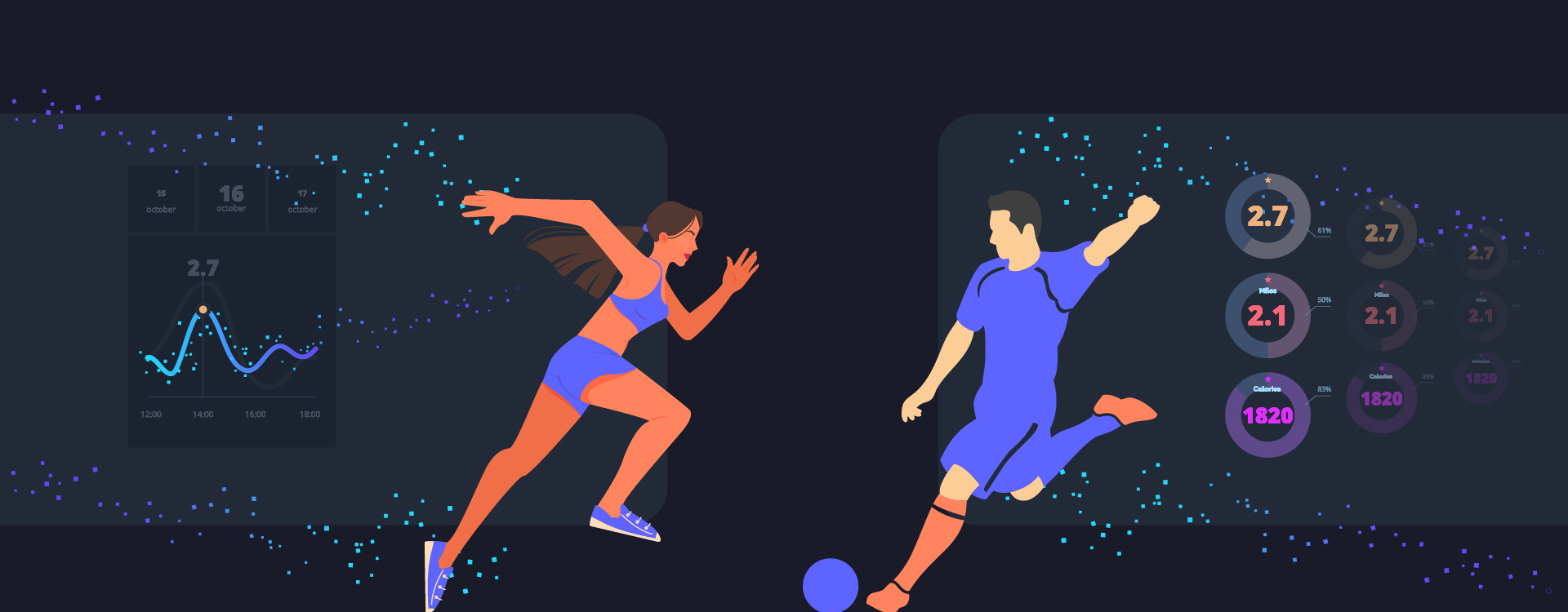PT Usha, India’s lone track and field athlete to have participated in four Olympics expresses her dejection over not winning a medal at the Olympics for the country. In an interview, she said that Indians not winning an Olympic medal at the track and field event can be attributed to a lack of providing scientific training to athletes as well as being unable to identify talent from the grassroot level.
It is indeed true, ever since India made its Olympic debut in 1900, it has managed to put a dismal count of only 28 medals to date. A country, whose fraction of the young population constitutes around 35 percent of the total population pie holds a poor population to medal ratio.
With the advancement in science, technologies such as computer vision, machine learning, advanced wireless connectivity, and wearable sensors have made inroads into the sports space to become sports analytics platforms transforming the way athletes train, compete, and manage their careers while providing in-depth insights to coaches and athletes on live in-game activity and past game events. The extensive use of sports analytics platforms in an athlete’s training programme will fill the void that PT Usha was referring to.
Why does India lack a sports analytics platform for athletes?
Search for sports analytics tools that serve other than cricket, you will get few results. For a country where people worship cricket, a majority of the sports analytics tools are designed for cricket due to its popularity and India being world champions. Cricket analytics platforms like SportingMindz and Sports Mechanics are known to have given their services to IPL teams like RCB, Kings XI Punjab, KKR, and Deccan Chargers etc.
The low popularity of other sports like running, gymnastics, swimming, boxing and India’s poor performance in the Olympics forces the developers of the analytics platform to choose cricket over any other sport. Besides, the respective federations and sports bodies are equally to be blamed for their reluctance to invest in the betterment of athletes’ training, therefore there is no creation of supply and demand of sports analytics platform dedicated to athletics.
‘‘
The technology interference in the sports space has transformed the way athletes train, compete and strategise games.
Benefits of Sports Analytics Platforms
In the absence of sports analytics platforms, the assessment of an athlete’s performance is through archaic methods of reviewing the gameplays by rewinding videos of their performance looking out for mistakes or scope of improvement. Here are some of the benefits the sports analytics tools can offer:
Injury Prediction: Deep learning algorithms like convolutional neural network models will help to understand the deviation of an athlete’s posture and technique.
Strategise games for maximum wins: Data science in sports can help maximise wins by offering trusted insights on what will likely happen after each decision to extract the best performance. It can predict the strengths and weaknesses of opposition teams and devise the right strategy for the game in any situation.
Find the right player: During practice matches or selection matches, scouting for the right player is a challenge. Using machine learning techniques such as clustering and statistical analysis provides insights into a player’s skills, biometrics to identify the right player. Automated video analysis also aids in selecting the player.
Best Routines and training strategy: Best training regimes and strategies can be created by analysing previous practice matches.
What Lies Ahead for the Sports Analytics Platform in India?
The Tokyo Olympics is certainly emerging to be different than other Olympics as India has sent its largest-ever contingent of 119 athletes to compete at 85 medal events. We can witness the determined athletes advancing in their respective disciplines of boxing, shooting, badminton, sailing, table tennis, and hockey where previously they got eliminated in initial rounds. This is something to realise for sports analytics platforms that there is talent available and the right resources and technology support will further enhance the performance of athletes to win medals. The sports analytics platform will have ample business opportunities to provide its services at the grassroots level i.e., during national level or state level trials or in schools and colleges to help coaches find the best athlete.




